10 Best Herbal Tinctures For Infection

Herbal tinctures are concentrated liquid preparations made by soaking plant materials in alcohol or glycerin, which allows for the extraction of active compounds.
These tinctures have been used for centuries in traditional medicine to treat various infections, including bacterial, viral, and fungal ailments. Many herbs commonly used in tinctures, such as echinacea, goldenseal, and garlic, possess antimicrobial, anti-inflammatory, and immune-boosting properties. While some studies suggest their efficacy in supporting the body's natural defenses against infections, it is important to note that they should not replace conventional medical treatments for serious infections.
Always consult with a healthcare professional before using herbal tinctures, especially if you have underlying health conditions or are taking other medications.
Table of Contents
- 1. Echinacea (Echinacea purpurea)
- 2. St. john's wort (Hypericum perforatum)
- 3. Bloodroot (Sanguinaria canadensis)
- 4. Stinging nettle (Urtica dioica)
- 5. White cedar (Thuja occidentalis)
- 6. Ginger (Zingiber officinale)
- 7. Thyme (Thymus vulgaris)
- 8. Aloe vera (Aloe barbadensis)
- 9. St. john's wort (Agrimonia eupatoria)
- 10. Ceylon cinnamon (Cinnamomum verum)
1. Echinacea (Echinacea purpurea)

Echinacea purpurea, commonly known as purple coneflower, is a popular herbal remedy used to support the immune system and reduce the risk of infections.
Its tincture form, typically made by soaking the dried plant in alcohol, is widely used for its antimicrobial and anti-inflammatory properties. Studies suggest that echinacea tinctures may help shorten the duration of colds and other upper respiratory infections by enhancing immune response. However, the effectiveness can vary depending on the specific preparation and dosage.
While generally considered safe for most people, it is important to consult a healthcare provider before use, especially for those with allergies or taking other medications.
2. St. john's wort (Hypericum perforatum)

Hypericum perforatum, commonly known as St. John's Wort, has been traditionally used for its potential antimicrobial properties, making its herbal tinctures a subject of interest in the treatment of infections.
The tinctures are typically prepared by soaking the dried herb in alcohol, which helps extract bioactive compounds such as hypericin and hyperforin. Studies suggest that these compounds may exhibit antibacterial, antifungal, and antiviral activities, though more research is needed to confirm their efficacy against specific pathogens. While some preliminary evidence supports its use in managing infections, it is important to note that St. John's Wort can interact with various medications, so its use should be approached with caution and under professional guidance.
Overall, hypericum perforatum tinctures may offer a complementary approach to infection management, but they should not replace conventional medical treatments without consultation.
3. Bloodroot (Sanguinaria canadensis)
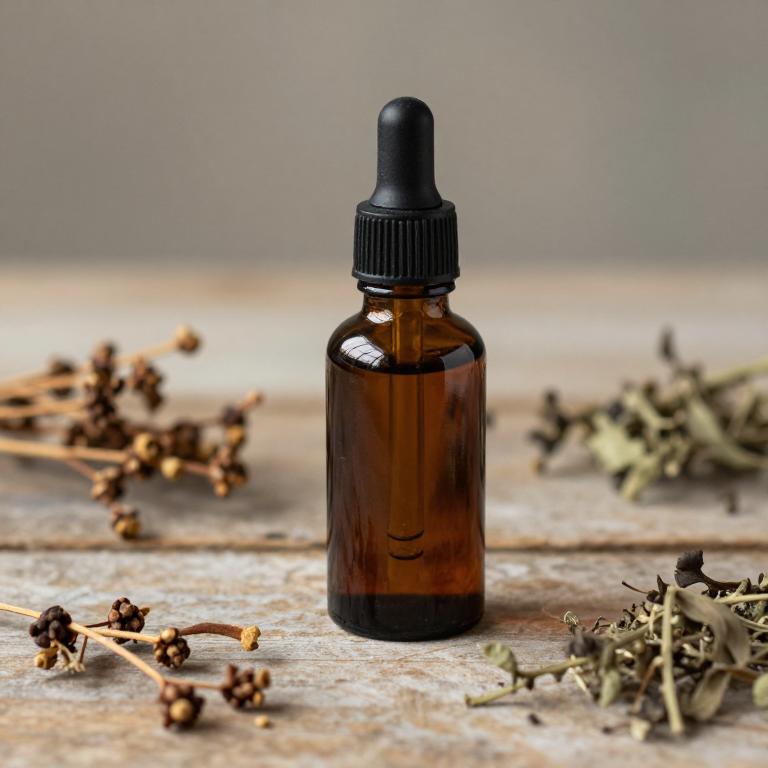
Sanguinaria canadensis, commonly known as bloodroot, has been traditionally used in herbal medicine for its antimicrobial properties, making its tinctures a potential remedy for certain types of infections.
The plant contains alkaloids such as sanguinarine, which exhibit antibacterial, antifungal, and antiviral activities, supporting its use in addressing infections of the skin, respiratory tract, and mucous membranes. When prepared as a tincture, bloodroot can be applied topically or taken internally in diluted form, though caution is necessary due to its potent and potentially toxic nature. While some studies suggest its efficacy against specific pathogens, more research is needed to confirm its safety and effectiveness for modern medical applications.
As with any herbal remedy, it is advisable to consult a qualified healthcare practitioner before use, especially for individuals with pre-existing conditions or those taking other medications.
4. Stinging nettle (Urtica dioica)

Urtica dioica, commonly known as stinging nettle, has been traditionally used in herbal medicine for its anti-inflammatory and antimicrobial properties.
When prepared as a tincture, Urtica dioica can support the body's natural defenses against infections by enhancing immune function and reducing inflammation. The active compounds in stinging nettle, such as flavonoids, alkaloids, and polysaccharides, contribute to its ability to combat bacterial and viral infections. Herbal tinctures made from Urtica dioica are often used topically for skin infections or internally to support respiratory and urinary tract health.
However, it is important to consult with a healthcare professional before using stinging nettle tinctures, especially for individuals with allergies or those taking other medications.
5. White cedar (Thuja occidentalis)
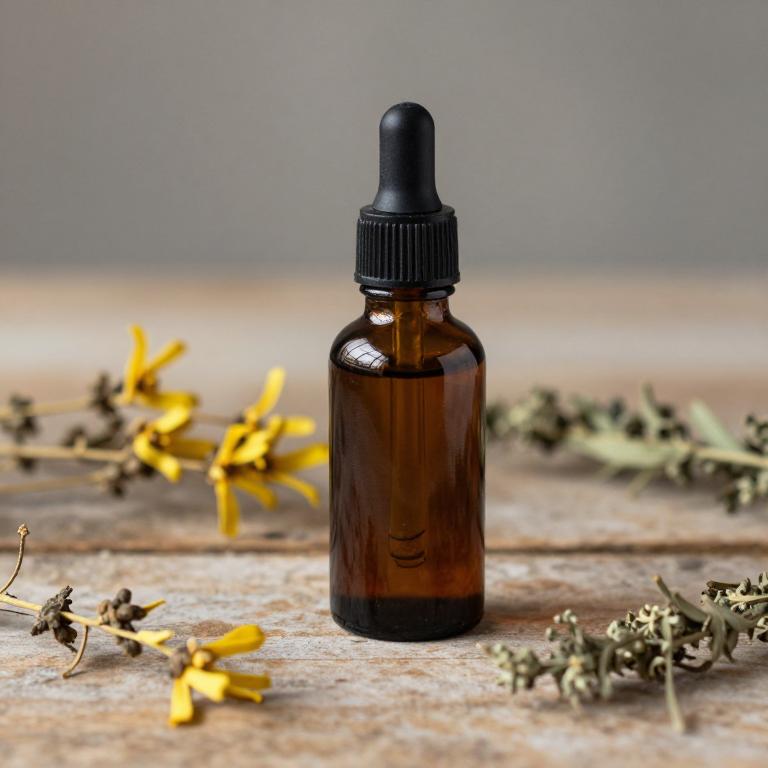
Thuja occidentalis, also known as eastern arborvitae, is a traditional herbal remedy that has been used for centuries to support immune function and combat infections.
Its tincture form, typically made by soaking the leaves and twigs in alcohol, is believed to have antimicrobial and antiviral properties that may help in fighting bacterial and viral infections. Some studies suggest that thuja tinctures may assist in reducing symptoms of respiratory tract infections, such as coughs and sore throats, due to their expectorant and anti-inflammatory effects. However, it is important to note that while thuja tinctures are often used as a complementary therapy, they should not replace conventional medical treatments for serious infections.
Always consult with a healthcare professional before using thuja tinctures, especially for individuals with chronic conditions or those taking other medications.
6. Ginger (Zingiber officinale)

Zingiber officinale, commonly known as ginger, has been traditionally used for its antimicrobial properties, and its herbal tinctures are increasingly being explored for their potential in treating infections.
These tinctures are prepared by extracting the active compounds from fresh or dried ginger root using alcohol, which helps to concentrate the bioactive ingredients such as gingerols and shogaols. Studies suggest that these compounds may exhibit antibacterial, antifungal, and antiviral activities, making ginger tinctures a promising natural alternative for managing various types of infections. However, while preliminary research is encouraging, more clinical trials are needed to fully establish their efficacy and safety in human infections.
As a complementary therapy, ginger tinctures may support conventional treatments, but they should not replace professional medical advice or prescribed medications.
7. Thyme (Thymus vulgaris)

Thymus vulgaris, commonly known as thyme, is a popular herb used in traditional medicine for its antimicrobial and antiseptic properties.
Thymus vulgaris herbal tinctures are concentrated extracts made by soaking the dried herb in alcohol, which helps preserve its active compounds such as thymol and carvacrol. These tinctures are often used to support the body's natural defenses against bacterial and viral infections due to their potent antibacterial and antifungal effects. They may be applied topically to wounds or taken internally to help alleviate symptoms of respiratory infections, such as coughs and sore throats.
However, it is important to consult a healthcare professional before using thyme tinctures, especially for prolonged periods or in combination with other medications.
8. Aloe vera (Aloe barbadensis)
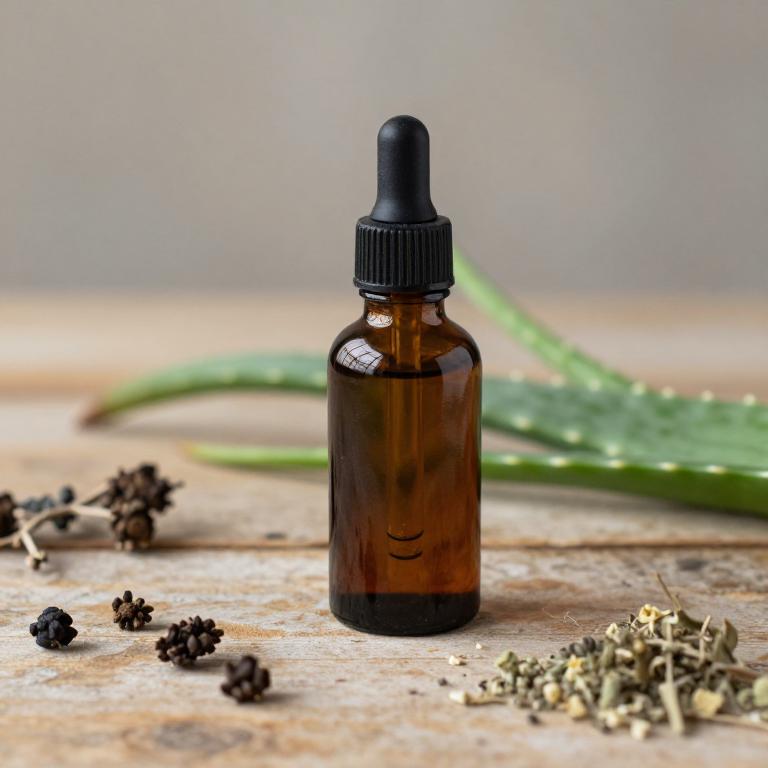
Aloe barbadensis, commonly known as aloe vera, has been traditionally used for its potential therapeutic properties, including its ability to support the body's natural defenses against infection.
Aloe vera herbal tinctures are prepared by extracting the gel from the plant and combining it with alcohol, creating a concentrated form that may enhance its bioavailability. These tinctures are believed to possess antimicrobial, anti-inflammatory, and immune-boosting properties that may aid in the treatment of various infections. Some studies suggest that aloe vera can inhibit the growth of bacteria, fungi, and viruses, making it a valuable complementary therapy in managing infections.
However, while aloe vera tinctures show promise, they should not replace conventional medical treatments, and individuals should consult with healthcare professionals before using them for infection-related concerns.
9. St. john's wort (Agrimonia eupatoria)
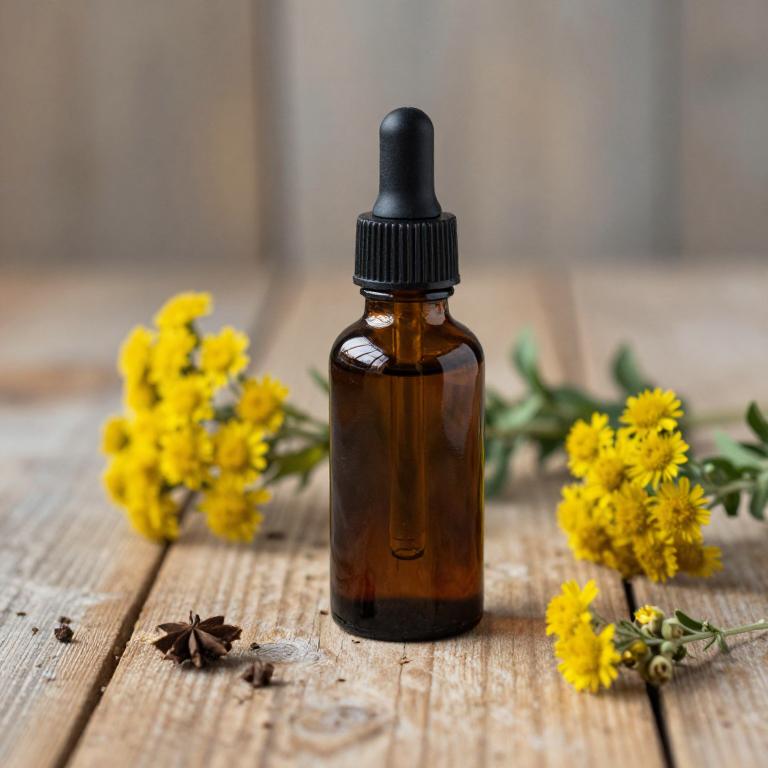
Agrimonia eupatoria, commonly known as St. John's wort, is a herbal plant that has been traditionally used for its anti-inflammatory and antimicrobial properties.
Herbal tinctures made from Agrimonia eupatoria are often prepared using alcohol as a solvent to extract the active compounds, including flavonoids and hypericin, which contribute to their medicinal effects. These tinctures have been historically used to treat infections, particularly those affecting the urinary tract and skin, due to their ability to reduce inflammation and inhibit microbial growth. Modern research suggests that the plant's compounds may support immune function and have broad-spectrum antimicrobial activity.
However, it is important to consult a healthcare professional before using Agrimonia eupatoria tinctures, especially since they can interact with certain medications.
10. Ceylon cinnamon (Cinnamomum verum)
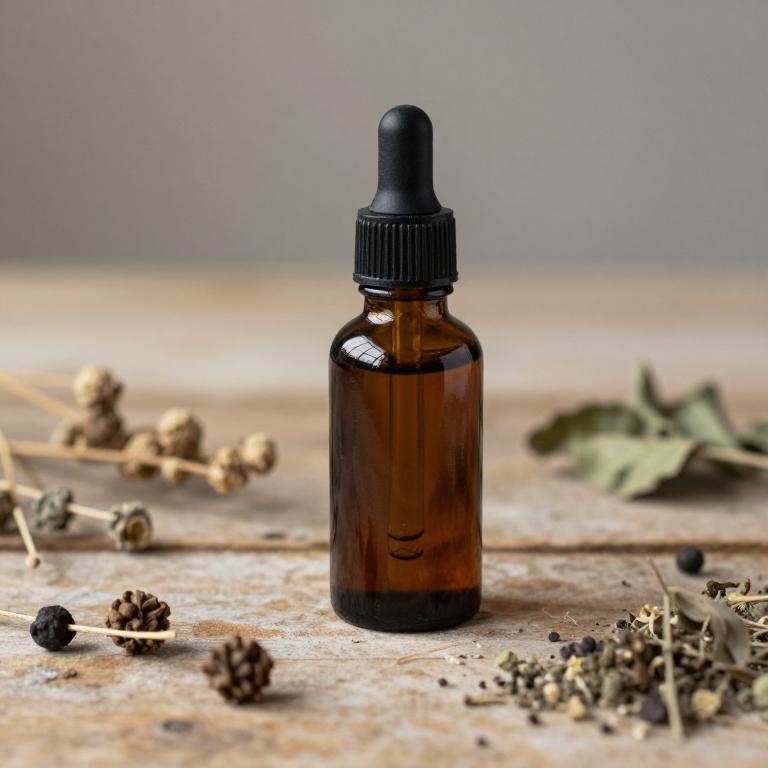
Cinnamomum verum, commonly known as true cinnamon, has been traditionally used in herbal medicine for its potent antimicrobial properties.
Herbal tinctures made from Cinnamomum verum are often prepared by steeping the bark in alcohol to extract its active compounds, such as cinnamaldehyde and eugenol. These tinctures are believed to help combat bacterial and fungal infections due to their ability to inhibit microbial growth. They are commonly used topically for skin infections or diluted for internal use to support immune function.
However, it is important to consult a healthcare professional before using cinnamon tinctures, as they may interact with medications or cause adverse effects in certain individuals.